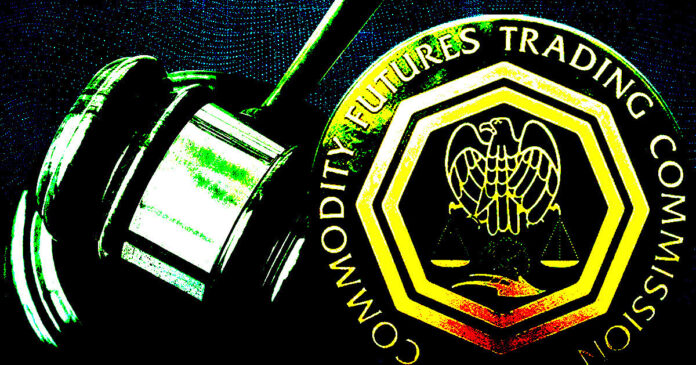
CFTC Commissioner Christy Goldsmith Romero has asked the U.S. Senate to tighten a piece of crypto regulation, according to a Jan. 18 report from the Wall Street Journal.
Commissioner warns against self-certification
Goldsmith Romero said today:
“I urge Congress to avoid permitting newly-regulated crypto exchanges to self-certify products for listing.”
That advice concerns a bill — the Digital Commodities Consumer Protection Act (DCCPA) — which would grant self-certification powers to exchanges. This would allow exchanges to maintain substantial control over the specific crypto tokens they list for trading.
Goldsmith Romero asserted that self-certification could reduce the Commodity Futures Trading Commission’s ability to oversee cryptocurrency exchanges.
She also warned that self-certification could allow exchanges to avoid the reach of another regulator: the U.S. Securities and Exchange Commission.
As such, Goldsmith Romero urged the U.S. Senate to strengthen requirements for exchanges contained within the bill before advancing it further.
Bill is designed to give CFTC greater control
The Digital Commodities Consumer Protection Act has been under consideration since at least August 2022, when it was introduced in the U.S. Senate.
The bill is intended to give the CFTC control over standard crypto trading regardless of particular details like self-certification. The text of the DCCPA explicitly grants the CFTC “jurisdiction to oversee the spot digital commodity market.”
The DCCPA is controversial for a number of other reasons. Former FTX CEO Sam Bankman-Fried lobbied in favor of the bill last year. Some speculated that FTX’s collapse in November would delay the bill by motivating lawmakers to revise it and strengthen its requirements for exchanges. Perhaps not coincidentally, Goldsmith Romero made her statements today during a panel on the collapse of FTX.
The bill is also controversial since it requires all digital asset services to register with the CFTC. This implicitly prevents decentralized exchanges and DeFi platforms from existing, and the bill has been widely labeled a “DeFi killer”.
Currently, the CFTC regulates derivatives trading. This has given the regulator sufficient room to participate in high-profile crypto cases, such as actions against FTX and associated parties and Mango Markets attacker Avraham Eisenberg.
Though those cases involved some matters unrelated to derivatives, the CFTC could share responsibilities with other agencies so that charges were comprehensive.
Credit: Source link






















 Bitcoin
Bitcoin  Ethereum
Ethereum  XRP
XRP  Tether
Tether  Solana
Solana  USDC
USDC  Dogecoin
Dogecoin  Cardano
Cardano  Lido Staked Ether
Lido Staked Ether  TRON
TRON  Wrapped Bitcoin
Wrapped Bitcoin  Chainlink
Chainlink  Wrapped stETH
Wrapped stETH  Avalanche
Avalanche  Sui
Sui  Stellar
Stellar  Litecoin
Litecoin  Toncoin
Toncoin  Hedera
Hedera  LEO Token
LEO Token  Shiba Inu
Shiba Inu  USDS
USDS  Hyperliquid
Hyperliquid  Polkadot
Polkadot  WETH
WETH  MANTRA
MANTRA  Bitcoin Cash
Bitcoin Cash  Bitget Token
Bitget Token  Ethena USDe
Ethena USDe  Wrapped eETH
Wrapped eETH  Uniswap
Uniswap  Monero
Monero  NEAR Protocol
NEAR Protocol  WhiteBIT Coin
WhiteBIT Coin  Pepe
Pepe  Aave
Aave  Ondo
Ondo  Bittensor
Bittensor  Aptos
Aptos  Dai
Dai  Internet Computer
Internet Computer  Official Trump
Official Trump  Mantle
Mantle  Ethereum Classic
Ethereum Classic  Tokenize Xchange
Tokenize Xchange  OKB
OKB  Gate
Gate  sUSDS
sUSDS  Sonic (prev. FTM)
Sonic (prev. FTM) 
